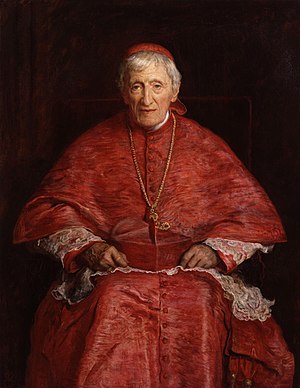Portal:University of Oxford
| Main page | Indices | Projects |
The University of Oxford portal
The University of Oxford is a collegiate research university in Oxford, England. There is evidence of teaching as early as 1096, making it the oldest university in the English-speaking world and the world's second-oldest university in continuous operation. It grew rapidly from 1167, when Henry II banned English students from attending the University of Paris. After disputes between students and Oxford townsfolk in 1209, some academics fled north-east to Cambridge where they established what became the University of Cambridge. The two English ancient universities share many common features and are jointly referred to as Oxbridge.
The University of Oxford is made up of thirty-nine semi-autonomous constituent colleges, four permanent private halls, and a range of academic departments which are organised into four divisions. Each college is a self-governing institution within the university, controlling its own membership and having its own internal structure and activities. All students are members of a college.
It does not have a main campus, but its buildings and facilities are scattered throughout the city centre. Undergraduate teaching at Oxford consists of lectures, small-group tutorials at the colleges and halls, seminars, laboratory work and occasionally further tutorials provided by the central university faculties and departments. Postgraduate teaching is provided in a predominantly centralised fashion.
Oxford operates the Ashmolean Museum, the world's oldest university museum; Oxford University Press, the largest university press in the world; and the largest academic library system nationwide. In the fiscal year ending 31 July 2023, the university had a total consolidated income of £2.92 billion, of which £789 million was from research grants and contracts.
Oxford has educated a wide range of notable alumni, including 30 prime ministers of the United Kingdom and many heads of state and government around the world. 73 Nobel Prize laureates, 4 Fields Medalists, and 6 Turing Award winners have matriculated, worked, or held visiting fellowships at the University of Oxford, while its alumni have won 160 Olympic medals. Oxford is the home of numerous scholarships, including the Rhodes Scholarship, one of the oldest international graduate scholarship programmes. (Full article...)
Selected article
The university's position of Savilian Professor of Geometry was established in 1619. It was founded (at the same time as the Savilian Professorship of Astronomy) by Sir Henry Savile (pictured), a mathematician who was Warden of Merton College, reacting to what has been described as "the wretched state of mathematical studies in England" at that time. He appointed Henry Briggs as the first professor. There have been 19 geometry professors in all, with the most recent, Nigel Hitchin, appointed to the chair in 1997. Past professors include Edmond Halley, the astronomer, and Baden Powell, the father of the founder of the scout movement Robert Baden-Powell. Edward Titchmarsh (professor from 1931 to 1963) said when applying that he was not prepared to lecture on geometry, and the requirement was removed from the duties of the post to enable his appointment, although the title of the chair was not changed. The two Savilian chairs have been linked with professorial fellowships at New College since the late 19th century. Before then, for over 175 years until the middle of the 19th century, the geometry professors had an official residence adjoining the college in New College Lane. (Full article...)
Selected biography
Selected college or hall
Exeter College is the fourth-oldest college of the university, having been founded in 1314 as "Stapeldon Hall" by Walter de Stapeldon, Bishop of Exeter, as a school to educate clergy. It is located on Turl Street in the centre of the city, opposite Jesus College. The college expanded in the 16th century after donations from Sir William Petre, a former Exeter graduate. The oldest remaining part of the buildings, Palmer's Tower, dates from 1432, and the hall was built in 1618. Further additions were made in the 17th and early 18th centuries, before Sir George Gilbert Scott's additions in the mid-19th century, including the chapel (inspired by the Sainte Chapelle in Paris), the library and the Broad Street range. It is the real-life basis for the fictional Jordan College in Philip Pullman's novel trilogy His Dark Materials, and the final episode of the television detective series Inspector Morse saw Morse suffering a heart attack inside Exeter College. Former students include the writers J. R. R. Tolkien, Alan Bennett and Martin Amis, the artist Edward Burne-Jones, and the first Prime Minister of Pakistan Liaquat Ali Khan. The college has a close relationship with Williams College, in Williamstown, Massachusetts. Since 1985, 26 undergraduate students from Williams spend their junior year at Exeter each year as full members of the college. (Full article...)
Selected image

Did you know
Articles from Wikipedia's "Did You Know" archives about the university and people associated with it:
- ... that the Indian Institute (pictured) in central Oxford was founded by Sir Monier Monier-Williams in 1883 to provide training for the Indian Civil Service?
- ... that sports car racer, yachtsman and rower Robert Hichens was also the most highly decorated officer of the Royal Naval Volunteer Reserve during the Second World War?
- ... that Daniel Ernst Jablonski in the 1690s tried to bring about a union between Lutheran and Calvinist Protestants?
- ... that the English historian Sir Raymond Carr was knighted for services to History in the New Year Honours List, 1987?
- ... that John Percival, when headmaster of Rugby School, gained the nickname "Percival of the knees" because he was concerned about "impurity" and insisted that boys secure their football shorts below the knee with elastic?
Selected quotation
Selected panorama
Wikimedia
The following Wikimedia Foundation sister projects provide more on this subject:
-
Commons
Free media repository -
Wikibooks
Free textbooks and manuals -
Wikidata
Free knowledge base -
Wikinews
Free-content news -
Wikiquote
Collection of quotations -
Wikisource
Free-content library -
Wikiversity
Free learning tools -
Wikivoyage
Free travel guide -
Wiktionary
Dictionary and thesaurus















